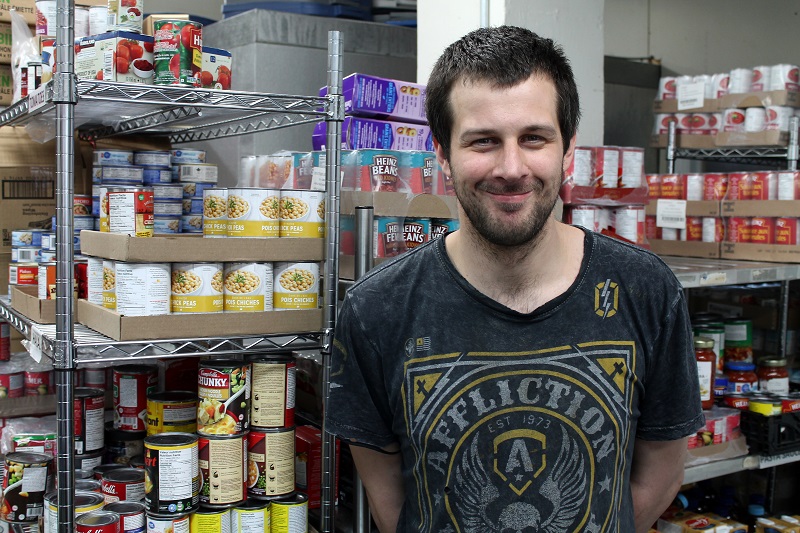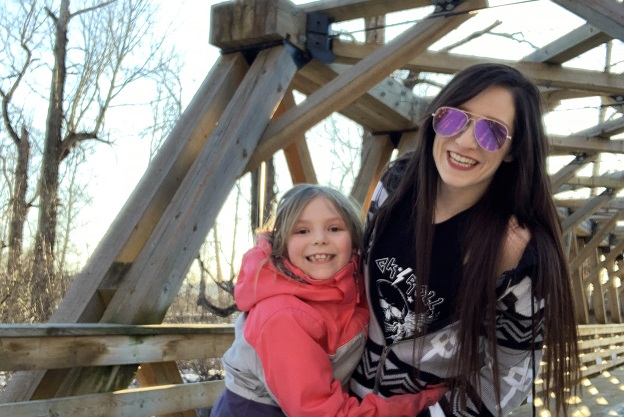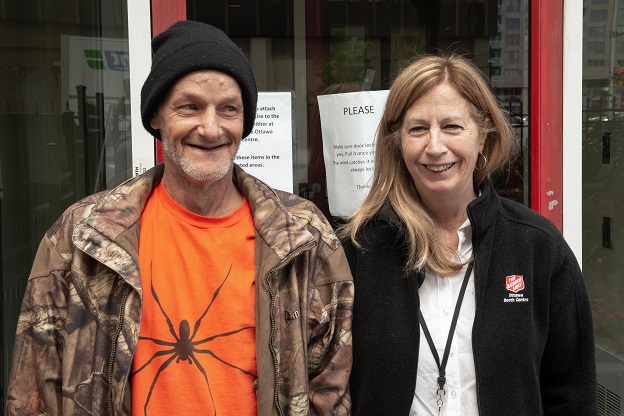The Salvation Army Commits to Breaking the Cycle of Homelessness
 The Salvation Army cares about the homeless. Terri Williams shuffled from friend to friend after a violent attack left her unable to work and, therefore, unable to pay the rent. Eventually, she was on the streets, frightened and alone.
The Salvation Army cares about the homeless. Terri Williams shuffled from friend to friend after a violent attack left her unable to work and, therefore, unable to pay the rent. Eventually, she was on the streets, frightened and alone.
Ken Acker lived on a park bench. Addicted to drugs and alcohol, he could no longer feed, house, wash or clothe himself. Beaten down by shame and disgust, he was a step away from taking his own life.
Both Terri and Ken discovered a fresh opportunty for positive change at The Salvation Army’s Belkin House in the heart of Vancouver.
About Belkin House
More than 50 years ago The Salvation Army opened Dunsmuir House for men in the heart of Vancouver. In September 2004, the facility moved to a new location, was built as a multi-purpose centre, and renamed Belkin House.
This state-of-the-art facility provides a home to the homeless and those who are at risk of homelessness. It’s a place of healing where men women and children fight against homelessness, hunger and despair. Belkin House reaches out to help people whose lives are battered and broken. Programs are offered to help residents become well, whole and healed.
Belkin House hosts a variety of residential progrmas and houses up to 224 men, women and children. It is a clean, safe, secure and comfortable accomodation for those who have met with hard times.
Terri’s story
In her late teens, Terri attempted to end a relationship with a boyfriend and was raped. She became pregnant and, fearful for her life and that of her unborn baby, she stayed with the father. He was physically abusive, an alcoholic and drug addict. She would eventually move, with her son, from Ottawa to Vancouver where family support was available.
In 2008 Terri, age 55, suffered a vicious attack that left her with a concusssion, and unable to walk or talk. In an attempt to protect her 23-year-old son during an apartment robbery, Terri took a blow to the head with a hammer, was chain-whipped and beaten. She could no longer work and was unable to pay the rent.
Now homeless, Terri shuffled from friend to friend while she tried to heal. Eventually she found shelter at The Salvation Army Belkin House. “I was in a desperate state physically, emotionally and spiritually,” says Terri. “At Belkin House I felt safe and cared for. The shelter gave me peace of mind and the stablilty I needed.”
Although Terri continues to heal from her wounds, she is able to work part-time and pay her rent. She values the ongoing encouragement and support she recieves from staff at Belkin House.
Ken’s story
Ken’s parents both died when he was two years old. At age three he was adopoted. His grief and loss resulted in feelings of anger, abandonment, lonliness and fear. He was withdrawn and struggled to come to grips with his new environment. In his early teens Ken turned to alcohol and drugs to numb the pain. “This was the beginning of my self-destructive path,” says Ken.
“My addictions became so powerful I couldn’t stop.”
For years Ken lived in hostels, cheap hotels, and on the streets. The deeper he fell into addiciton, the more worthless and hopeless he felt. When he found himself in jail, he wanted to end his life.
“The drugs had total control of me,” says Ken. “A park bench became home where I would sit with no hope. When I could no longer feed, house, wash or clothe myself I turned to The Salvation Army for help.”
In October 2009 Ken came to Belkin House. “Belkin house staff really care,” says Ken. “They didn’t abandon me. Trained counsellors and chaplains enabled my to find peace, contentment and purpose in my life.
“I have flourished under the guidance of The Salvation Army.”
About The Salvation Army
Last year, across the country, The Salvation Army provided 6,370 shelter, addictions, detox and mental health beds for vulnerable men, women and families. That’s one-quarter of all shelter beds in Canada. As well, more than 2,500 people completed addicitons and rehab programs. Thanks to the generosity of thousands of Canadians, many lives have been healed and transformed.



